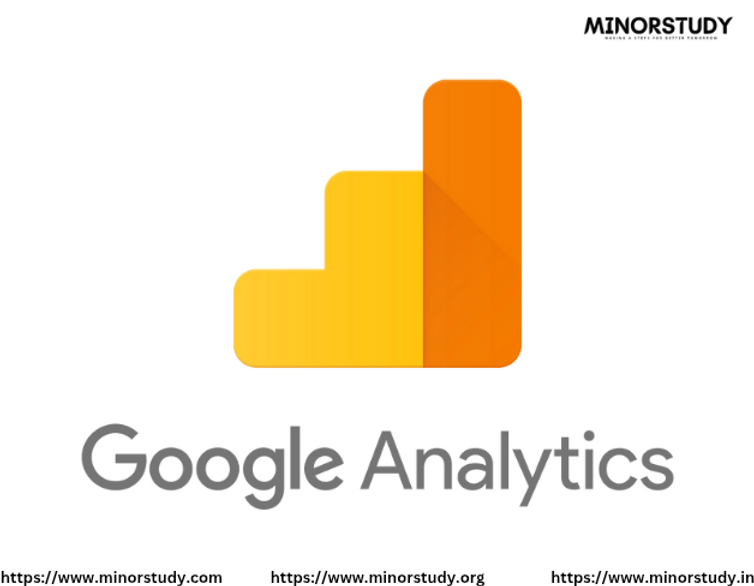In today’s data-driven world, understanding your audience is key to online success. Google Analytics, a free web analytics tool by Google, empowers individuals and businesses to track and analyze website traffic. From small bloggers to giant e-commerce platforms, everyone uses it to gain insight into user behavior. But there’s much more to Google Analytics than just numbers—it’s about understanding, adapting, and growing in a digital space.
History of Google Analytics
Google Analytics was launched in November 2005, following Google’s acquisition of Urchin Software Corporation. The goal? To make high-end analytics accessible to every website owner. Here’s a brief timeline:
Timeline of Google Analytics
- 2005 – Google acquires Urchin and launches Google Analytics.
- 2006 – Google Analytics becomes available to all users.
- 2011 – Introduction of Real-Time data.
- 2012 – Launch of Universal Analytics.
- 2017 – Google introduces Google Analytics 360 for enterprises.
- 2020 – Google Analytics 4 (GA4) is launched, a major shift focusing on machine learning and privacy.
- 2023 – GA4 becomes the default analytics tool, replacing Universal Analytics.
This progression showcases how the platform has evolved with the changing web ecosystem, user expectations, and data regulations.
Key Facts About Google Analytics
- It’s Free: The standard version of Google Analytics is free.
- Used by Millions: Over 30 million websites use Google Analytics.
- Real-Time Tracking: See live user activity on your site.
- Audience Insights: Know demographics, interests, and behavior.
- Event Tracking: Track user interactions like clicks, video plays, downloads.
- Custom Reports: Create tailored reports based on your needs.
- E-commerce Tracking: Analyze sales, revenue, and conversion funnels.
- Integration Friendly: Easily integrates with Google Ads, Search Console, etc.
Significance of Google Analytics in Our Lives
In a digital age, data is as crucial as currency. Google Analytics turns raw data into readable insights that influence major decisions:
- For Businesses: Better understand their audience, refine marketing strategies, and maximize ROI.
- For Bloggers & Content Creators: Know what content resonates most.
- For Developers & Designers: Improve user experience through behavioral data.
- For Marketers: Optimize campaigns and track performance.
Google Analytics doesn’t just influence businesses—it helps us understand the digital footprints we leave and the behavior patterns of society online.
Why is Google Analytics Important?
- Data-Driven Decisions: Back your strategies with real-time, factual data.
- Track ROI: Know where your money is going and what’s working.
- User Understanding: Learn who your users are and how they interact.
- Continuous Improvement: Constantly tweak and improve based on data.
Whether you run a non-profit, startup, blog, or multinational business, Google Analytics provides a backbone for informed digital strategy.
Impact on Daily Life
Every time we interact with a website, data is being gathered. This impacts:
- Advertising: We see more relevant ads based on our interests.
- Content: Websites tailor content to what people engage with most.
- E-Commerce: Shopping becomes more personalized.
- UX Design: Interfaces evolve based on what works for users.
So, in essence, even if we never log in to Google Analytics, our online experience is shaped by it.
Wishing on Analytics Day (Hypothetical Observance)
Imagine a future where we celebrate “Analytics Awareness Day.” On such a day, we might wish:
“Wishing you clarity, insights, and conversions this Analytics Day! May your bounce rates be low and your sessions high!”
While not yet a recognized holiday, celebrating data awareness could foster more informed online practices.
FAQs About Google Analytics
Q1: Is Google Analytics free? Yes, the standard version is entirely free.
Q2: What is GA4? GA4 is the latest version of Google Analytics, focused on cross-platform tracking and enhanced privacy.
Q3: Can Google Analytics track individuals? No. It anonymizes data and complies with privacy laws like GDPR.
Q4: How accurate is the data? It’s highly reliable, but like any tool, it depends on correct implementation.
Q5: Do I need coding skills to use it? Not necessarily. Basic setup is easy, and deeper customization can be done with developer help.
Q6: Can it help with SEO? Yes. You can analyze traffic sources, bounce rates, and user behavior to optimize content.
Q7: Is GA4 better than Universal Analytics? Yes, especially for privacy, machine learning, and mobile-first tracking.
Observance and Role in Society
While there’s no formal observance, data literacy—understanding how digital tools like Google Analytics work—is becoming essential in schools, businesses, and governments. A society that understands its digital metrics can:
- Make smarter investments
- Avoid misinformation
- Foster transparency in business and governance
Thus, promoting analytics education is a step toward a more informed, efficient society.
Important Points to Remember
- It helps track and analyze web traffic.
- It evolves continuously to meet modern needs (e.g., GA4).
- Used globally by millions of websites.
- Impacts daily life by shaping content, ads, and user experience.
- Promotes data-driven culture in every industry.
Conclusion: Why Google Analytics Truly Matters
Google Analytics is more than just a tool—it’s a mirror reflecting how people interact with the digital world. It teaches us about user behavior, informs strategies, and drives growth. Whether you’re an entrepreneur, marketer, developer, or curious user, it opens doors to understanding and improvement.
In our rapidly changing digital society, those who understand data will lead. And Google Analytics is the compass for navigating that journey.
Embrace it, learn it, and let it guide your success online.
Final Thought: The websites you visit, the articles you read, and the products you buy—all are made better thanks to insights from Google Analytics.









You have noted very interesting points! ps nice site. “What a grand thing, to be loved What a grander thing still, to love” by Victor Hugo.